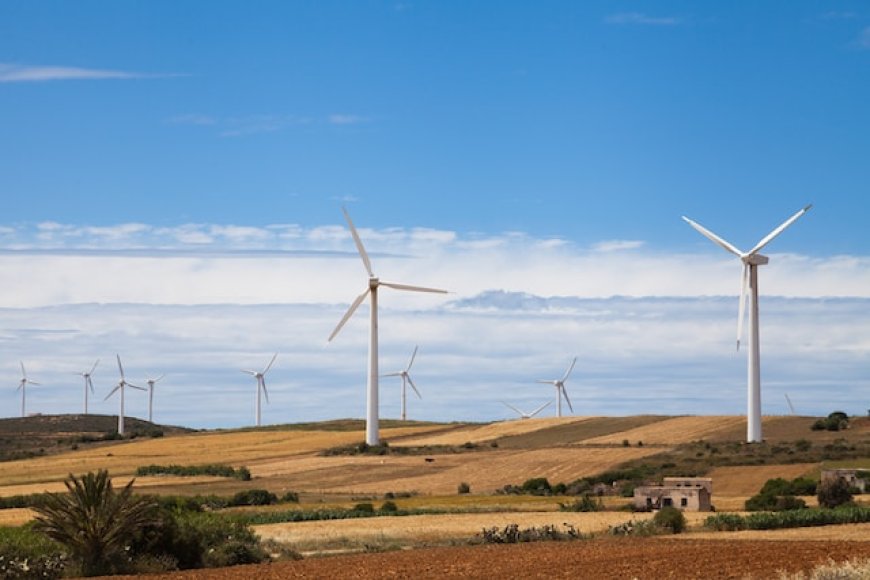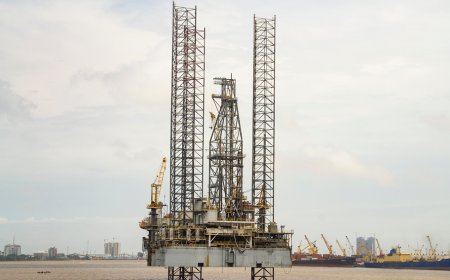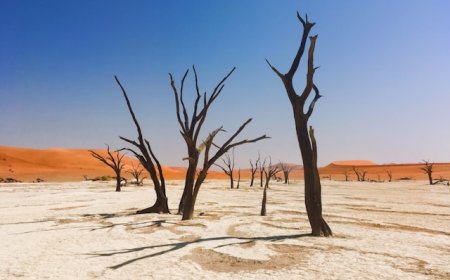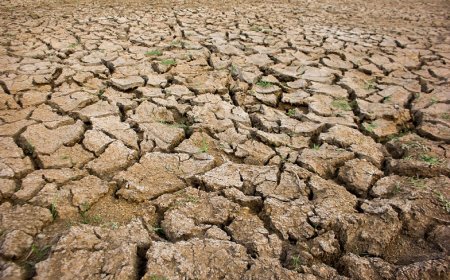This article is part of a series of special thought pieces that APRI is publishing in partnership with the African Climate Foundation in the run up to COP26 in Glasgow. The series is titled From Rio 1992 to COP26: Africa’s Climate Journey and the Road Ahead.
Highlights
- Developed countries have fallen woefully short on meeting the USD 100 billion annual target they committed to contribute to support developing countries respond to climate change.
- Loans continue to be the modus operandi of developed countries’ public climate finance ‘support’, with the share of loans increasing and the share of grants decreasing. This substantial finance gap is undermining African countries’ abilities to respond to climate change impacts.
- African countries, as the African Group, can follow through on their COP25 threat to withhold their agreement on the priorities of developed countries at Glasgow until the question of finance is resolved.
- Africa is home to minerals critical for energy transition and important for major economies’ military-industrial complexes. African countries can leverage their minerals to insist access to these minerals be contingent on investments being made in sectors that meet Africa’s climate and development priorities.
- African countries should expand their climate mobilization platforms from the UNFCCC to include platforms such as the WTO.
Introduction
Climate change is and will continue to have widespread and unprecedented impacts across the world, with poor and vulnerable communities, mainly in Africa, disproportionately bearing the brunt of its effects. There is, however, still a small window of opportunity to pre-emptively restructure and redirect the global economy on a more sustainable, inclusive, and resilient path towards mitigating some of the worst climate change impacts. Taking advantage of this opportunity will necessitate urgent action from decision makers around the world. Critically, it will require decision makers to bring climate change to the forefront of the global economic agenda.
Departing from business as usual and delivering ambitious climate adaptation and mitigation strategies is a daunting task. In Africa, efforts to pursue more sustainable pathways are greatly limited by fiscal constraints, with the costs of adaptation and mitigation proving prohibitively high for most countries. For example, total climate change adaptation costs for African countries between 2020 and 2030 are estimated to range between USD 259 billion and USD 407 billion. The costs of mitigation are even greater: an estimated USD 715 billion over the same period.2 This paper explores the current state of climate finance and suggests mechanisms with which African countries could mobilize their climate finance and support their climate change ambitions.
The dismal state of financial support for the developing world
At COP15 in Copenhagen in 2009, developed countries committed to collectively contributing USD 100 billion per year until 2020 to support developing countries in their climate change needs. This support was based on the recognition that the developing world, having contributed the least to climate change, was the most susceptible to its impacts and the least capacitated to mitigate those impacts. The following year, at COP16, this finance goal was formally recognized by parties in Cancun and was later extended to 2025 at COP21 in Paris in 2015.
Despite these commitments by the developed world, an OECD analysis has found that developed countries have fallen woefully short on meeting the USD 100 billion annual target. This shortfall has created a substantial finance gap that is undermining countries’ abilities to protect themselves against climate change impacts. The analysis also found that the support that had been received had been unevenly spread, with middle income countries receiving around 70 percent of the climate finance between 2016 and 2018, least developed countries as little as 14 percent, and small island states a pitiful 2 per cent.
Equally concerning is the finding that loans have been the primary modality for climate finance from public sources, with the share of loans increasing from 52% in 2013 to 74% in 2018. Over the same period, the share of grants in climate finance decreased by 7%, from 27% in 2013 to 20% in 2018. As a result, where vulnerable countries are receiving financial support, much of this ‘support’ ends up further contributing to their existing debt burdens.
Despite continuous pleas from developing countries that their ability to respond to climate change is being impaired by the lack of adequate support from the developed world, the Finance Climate Delivery Plan released by the UK Cop Presidency in October this year concluded that ‘even though final figures for 2020 are not available yet, it is becoming clear that developed countries will not have mobilized US$100 billion jointly by that year.’
To lessen the blow, the Plan suggests that ‘outlook to 2025 shows a positive trend in public climate finance, that developed countries will make significant progress towards the US$100 billion goal in 2022 and provides confidence that it would be met in 2023’. But, as commentators from Africa have noted, 2023 is simply too late – climate change impacts are already being felt throughout the continent, further compounding the impacts of COVID-19 on many of the world’s most vulnerable people.
So where to from here?
African countries simply do not have the luxury to wait for the developed world to realize its commitments if, and when, it decides that this is a priority. Instead, African countries need to think carefully, strategically, and collectively about how best to mobilize the finance necessary to support their climate change objectives – both within and outside the United Nations Framework Convention on Climate Change (UNFCCC) process.
As a starting point, African countries, as the African Group, can follow through on their COP25 threat to withhold their agreement on the priorities of developed countries at Glasgow until the question of finance is resolved. They can mobilize other blocs such as the Least Developed Countries, the Alliance of Small Island States, and the G77 plus China to do so too. This action would send a strong and powerful message to the international community and the developed world that the time for waiting is over. This position can be leveraged at the African COP in 2022 to insist on a clear, transparent, and traceable climate finance roadmap, based on the actual financial needs of the developing world and not simply on political commitments from developed countries - something that the African Group of Negotiators has been calling for.
African countries have another important bargaining chip at their disposal. As tensions between the world’s superpowers rise, fears over China’s dominance over rare earth supplies are seeing increased interest in Africa’s rare earth resources from the US, EU, Japan, and Australia. These minerals are not only critical for the energy transition but are also important for major economies’ military-industrial complexes. African countries therefore can leverage their resource base not only to influence the COP26 negotiations but also to insist on more favorable terms with the world’s global powers. Access to these resources can be contingent on investments being made into sectors that meet Africa’s climate and development priorities, such as local processing and manufacturing plants, skills and technology transfer, and climate adaptation.
If critical mineral development on the continent is done strategically and linked to broader continent-wide green industrialization objectives through mechanisms such as the African Continental Free Trade Agreement (AFCFTA), African countries will have far more bargaining power. As a collective, they can insist, for example, that trading partners must support greater localization of green technologies if they wish to access critical minerals. Creating new local industries that could leverage the continental free trade area to serve Africa’s large, and largely untapped, renewable energy market would generate new revenue sources and create new domestic investors that can also be mobilized to support the continent’s adaptation objectives.
In light of the power imbalances permeating the international climate change negotiations, African countries’ power lies in the collective. Accessing climate finance on a country-by-country or project-by-project basis enables interest on loans to be charged on an ad hoc basis and at unfavorable rates. While loans continue to be the modus operandi of developed countries’ public climate finance ‘support’, African countries should coordinate and collaborate to insist on less onerous and standardised rates. They should also draw on support from new domestic mechanisms such as the Africa Adaptation Acceleration Program — a joint initiative by the African Development Bank and the Global Center on Adaptation. By creating functional networks among African countries, that program aims to customize climate adaptation programs to suit local priorities focusing on climate resilience, climate action acceleration, and scale-up and financial mobilization.
Importantly, if the developing world is forced to access loans from the developed world as their means of financial ‘support’, then these loans should also be used to pursue other development objectives. To pursue this line, however, African governments will need to center climate change in their development policies. Continuing to view climate change as tangential to development perpetuates a cycle where climate change interventions are just another challenge governments are having to deal with, rather than an opportunity to meet a collection of needs. For example, if the majority of climate finance continues to be driven towards mitigation, then African countries should make mitigation support contingent on meeting objectives of a ‘just’ transition such as job creation, economic diversification, social inclusion. For example, if countries access finance for renewable energy, first they should avoid any conditionalities that insist on all technology being imported and, second, they must insist that the financial support they receive also makes provision for creating new local industries, supporting R&D, and training.
Finally, African countries should not limit their climate mobilization to platforms such as the UNFCCC. Increasingly, climate change is becoming a geopolitical tool, with developed countries seeking to secure future market shares in low carbon technologies. New rules around trade, such as the carbon adjustment tariffs, will have important implications on exports from African countries. African countries should therefore also mobilize around platforms such as the WTO and in negotiations such as the AU-EU to ensure they maintain some policy space and are able to protect their current sources of revenue while they build new industries that can support domestic climate finance mobilization.
Conclusion
If African countries are expected to contribute to global net zero targets, then African countries also need to be given the resources necessary to enable them to do so. This goes beyond simply supporting mitigation measures; it includes enabling them to build the adaptive capacity to protect their people and economies against climate change shocks. Over and above the developed world’s moral obligation, pressure is increasing from groups all over the world, and particularly the youth, for those who are responsible for climate change to be held to account. Now is an opportune moment for African countries to draw on this momentum, stand their ground, and insist on and direct greater action by the developed world.
About the Author
Dr Edward M. Mungai is a faculty member at the Strathmore University Business School, teaching Corporate Sustainability and Innovation. He holds a doctorate in business administration from Strathmore University. He is the Chief Executive Officer of the Kenya Climate Innovation Centre Group and a 2016 Eisenhower Fellow.




